ALSO BY MARGARITA ENGLE ENCHANTED AIR: Two Cultures, Two Wings: A Memoir SILVER PEOPLE: Voices from the Panama Canal THE LIGHTNING DREAMER: Cubas Greatest Abolitionist THE WILD BOOK HURRICANE DANCERS: The First Caribbean Pirate Shipwreck THE FIREFLY LETTERS: A Suffragettes Journey to Cuba TROPICAL SECRETS: Holocaust Refugees in Cuba THE SURRENDER TREE: Poems of Cubas Struggle for Freedom THE POET SLAVE OF CUBA: A Biography of Juan Francisco Manzano

ATHENEUM BOOKS FOR YOUNG READERS An imprint of Simon & Schuster Childrens Publishing Division 1230 Avenue of the Americas, New York, New York 10020 www.SimonandSchuster.com This book is a work of fiction. Any references to historical events, real people, or real places are used fictitiously. Other names, characters, places, and events are products of the authors imagination, and any resemblance to actual events or places or persons, living or dead, is entirely coincidental. Text copyright 2016 by Margarita Engle Jacket illustration copyright 2016 by Sean Qualls All rights reserved, including the right of reproduction in whole or in part in any form. A THENEUM B OOKS FOR Y OUNG R EADERS is a registered trademark of Simon & Schuster, Inc. Atheneum logo is a trademark of Simon & Schuster, Inc.
For information about special discounts for bulk purchases, please contact Simon & Schuster Special Sales at 1-866-506-1949 or . The Simon & Schuster Speakers Bureau can bring authors to your live event. For more information or to book an event, contact the Simon & Schuster Speakers Bureau at 1-866-248-3049 or visit our website at www.simonspeakers.com. Book design by Debra Sfetsios-Conover and Irene Metaxatos The text for this book is set in Simoncini Garamond Std. Library of Congress Cataloging-in-Publication Data Names: Engle, Margarita, author. Title: Lion Island : Chinese Cuba's warrior of words / Margarita Engle.
Description: First edition. | New York : Atheneum Books for Young Readers, [2016] Summary: A biographical novel about Antonio Chuffat, a Chinese-African-Cuban messenger boy in 1870s Cuba who became a translator and documented the freedom struggle of indentured Chinese laborers in his country. | Includes bibliographical references. Identifiers: LCCN 2015034288 ISBN 978-1-4814-6112-2 (hc) ISBN 978-1-4814-6114-6 (eBook) Subjects: LCSH: Chuffat Latour, Antonio, 1860Childhood and youthJuvenile fiction. | CYAC: Novels in verse. | Racially mixed peopleFiction. | Indentured servantsFiction. |
SlaveryFiction. | ChineseCubaFiction. | CubaHistory1810-1899Fiction. | CubaHistory1810-1899Fiction.
Classification: LCC PZ7.5.E54 Lio 2016 | DDC [Fic]dc23 LC record available at http://lccn.loc.gov/2015034288  para mi amiga Celina con su sangre de tres continentes y dos islas La libertad es la bestia que jams se amansa; rompe las cadenas que le atan con sangre y fuego, para recabar sus derechos. Liberty is the beast that is never tamed; it breaks the chains that bind it with blood and fire, to reclaim its rights. ANTONIO CHUFFAT
para mi amiga Celina con su sangre de tres continentes y dos islas La libertad es la bestia que jams se amansa; rompe las cadenas que le atan con sangre y fuego, para recabar sus derechos. Liberty is the beast that is never tamed; it breaks the chains that bind it with blood and fire, to reclaim its rights. ANTONIO CHUFFAT
Contents
Historical Background
B eginning in the 1840s, more than 250,000 men were shipped to Cuba and Peru from China as part of a treaty between the Spanish and Chinese empires. Working in Cubas sugarcane fields alongside African slaves, Chinese indentured laborers were often forced to sign one eight-year contract after another. Intermarriage between Chinese men and African women created a richly blended culture with unique religious, musical, and culinary traditions. In 1868, a small group of planters in Cuba freed slaves and declared independence from Spain.
Many Chinese Cubans joined the struggle for freedom, which turned into a series of three wars. Around the same time, Chinese Americans were fleeing anti-Asian riots in California. By the early 1870s, five thousand refugees had settled in Cuba. Their experience with democracy and free labor inspired indentured workers. When China sent diplomats to investigate the treatment of laborers, personal testimonies suddenly offered an alternative to violence. Guns were no longer the only way to gain liberty.
The power of written petitions offered hope. A Chinese African Cuban messenger boy named Antonio Chuffat documented the war of words.
Running with Words
ANTONIO CHUFFAT Age 12 Year of the Goat 1871
Carrying Words
The arrival of los californios changed everything. School. Work. Hope.
All are mine, now that I have a job delivering mysterious messages for Seor Tung Kong Lam from Shanghai, who fled to Cuba after only one year in San Francisco. Californias violence must be dragon-fierce to make so many refugees seek new homes on this island of war.
Shaped by Words
My ancestors were born in Asia, Africa, and Europe, but sometimes I feel like a bird that has migrated across the vast ocean to this one small island, as if I am shrinking. I dont know my africana mothers language. I hardly even know her enslaved relatives. I only know the chino half of my family.
Teachers call me a child of three worlds, but I feel like a creature of three words: Freedom. Liberty. Hope.
Craving Words
I was terrified when my father brought me to this busy city of La Habana from our quiet village. He left me alone at a school called el Colegio para Desamparados de la Raza de Color the School for Unprotected Ones of the Race of Color where I am only one of many part-African children.
Lion Men, Peacock Men, a Battle of Words
The messages I carry for Seor Lam go to businessmen, diplomats, and soldiers from two empires.
Lion Men, Peacock Men, a Battle of Words
The messages I carry for Seor Lam go to businessmen, diplomats, and soldiers from two empires.
Spains soldiers are familiar to me, but until so recently, I lived in the little village of Jovellanos, where I never saw imperial Chinas regal visitors. Military leaders from Peking wear sleek golden lions embroidered on their chests like roaring hearts. Soldiers of lower rank are marked by tigers, panthers, or leopards. But the most powerful symbols belong to diplomats men of words, whose silk robes are embroidered with shimmering peacocks, long-legged storks, or graceful white herons. Even a button can have meaning. Red, pink, blue, clear crystal, brown clay.
Each hue grants a diplomat the authority to settle certain types of arguments. Whenever I hover in the corner of a fancy room, awaiting a written reply that I can carry back to my busy employer, I notice the way soldiers always yield to civil officials. These peacock-decorated peacemakers are more respected than growling-lion military heroes.
Dream Words
When I close my eyes late at night after school and work, the comfort of sleep does not find me. All I see is a dreamlike parade of beasts, snarling and shrieking, while dignified winged beings quietly explain their POWERFUL opinions. Will anyone ever listen to me? What would I say if they did? Will I grow up to be a roaring lion-soldier or a calmly speaking diplomat-bird?
Weapon Words
POWER is a word that binds me in its spell of fiery strength.
POWER allows Spain to rule Cuba. POWER keeps africano slaves and indentured chinos in chains. But I am free-born, working, studying, and listening to Seor Lam as he speaks of democracy.... One man, one vote! Imagine having choices instead of FEARS.
Words Are Possibilities
During mornings at school, I recite Spanish verb forms, but my afternoons are spent racing with urgent notes written in Chinese characters. Each message wrapped in the warmth of my hand feels alive.


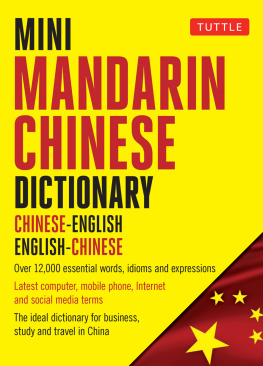
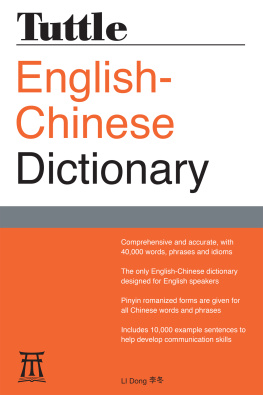
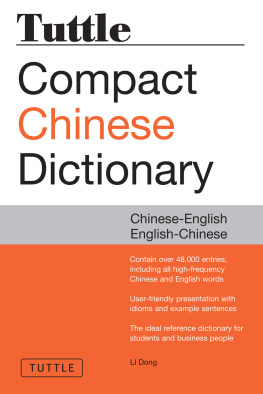
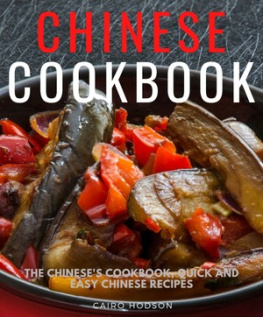
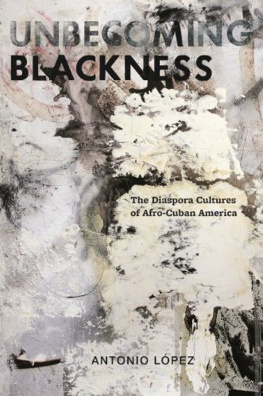
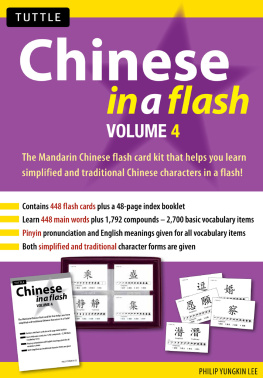
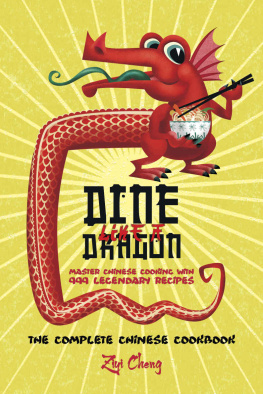
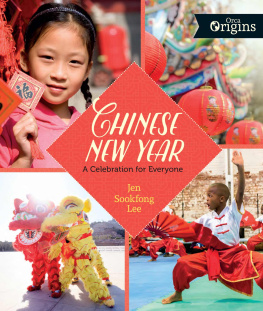
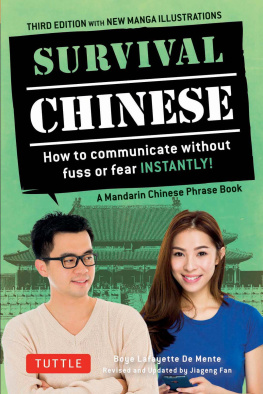
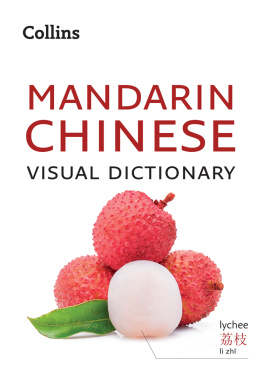
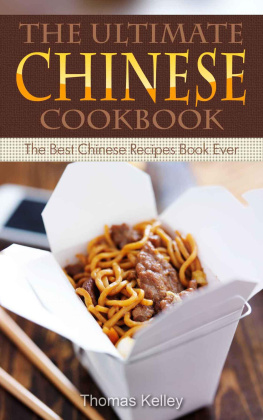

 ATHENEUM BOOKS FOR YOUNG READERS An imprint of Simon & Schuster Childrens Publishing Division 1230 Avenue of the Americas, New York, New York 10020 www.SimonandSchuster.com This book is a work of fiction. Any references to historical events, real people, or real places are used fictitiously. Other names, characters, places, and events are products of the authors imagination, and any resemblance to actual events or places or persons, living or dead, is entirely coincidental. Text copyright 2016 by Margarita Engle Jacket illustration copyright 2016 by Sean Qualls All rights reserved, including the right of reproduction in whole or in part in any form. A THENEUM B OOKS FOR Y OUNG R EADERS is a registered trademark of Simon & Schuster, Inc. Atheneum logo is a trademark of Simon & Schuster, Inc.
ATHENEUM BOOKS FOR YOUNG READERS An imprint of Simon & Schuster Childrens Publishing Division 1230 Avenue of the Americas, New York, New York 10020 www.SimonandSchuster.com This book is a work of fiction. Any references to historical events, real people, or real places are used fictitiously. Other names, characters, places, and events are products of the authors imagination, and any resemblance to actual events or places or persons, living or dead, is entirely coincidental. Text copyright 2016 by Margarita Engle Jacket illustration copyright 2016 by Sean Qualls All rights reserved, including the right of reproduction in whole or in part in any form. A THENEUM B OOKS FOR Y OUNG R EADERS is a registered trademark of Simon & Schuster, Inc. Atheneum logo is a trademark of Simon & Schuster, Inc.  para mi amiga Celina con su sangre de tres continentes y dos islas La libertad es la bestia que jams se amansa; rompe las cadenas que le atan con sangre y fuego, para recabar sus derechos. Liberty is the beast that is never tamed; it breaks the chains that bind it with blood and fire, to reclaim its rights. ANTONIO CHUFFAT
para mi amiga Celina con su sangre de tres continentes y dos islas La libertad es la bestia que jams se amansa; rompe las cadenas que le atan con sangre y fuego, para recabar sus derechos. Liberty is the beast that is never tamed; it breaks the chains that bind it with blood and fire, to reclaim its rights. ANTONIO CHUFFAT